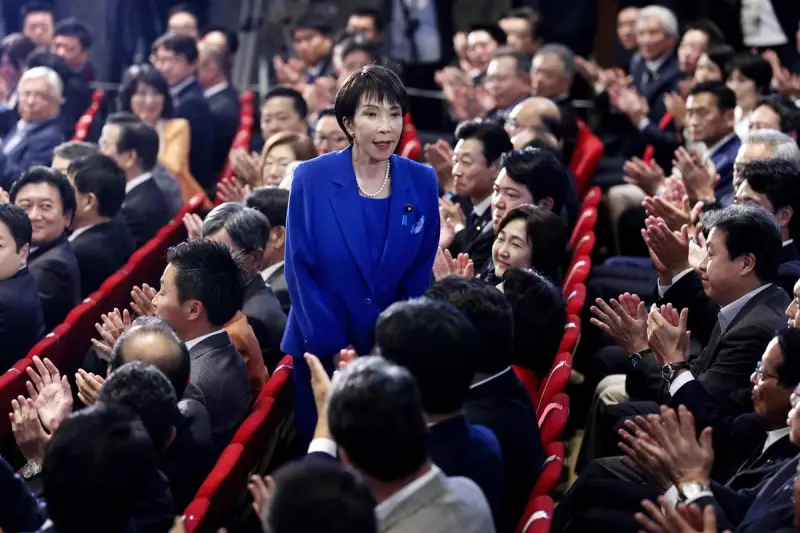
Japan's political arena is bracing for a significant power shift as prominent conservative figure Sanae Takaichi formally declared her intention to contest the ruling Liberal Democratic Party's leadership election, positioning herself as a potential successor to current Prime Minister Fumio Kishida.
Conservative Firebrand Throws Hat in the Ring
The former internal affairs minister, known for her hawkish defence policies and economic strategies, confirmed her candidacy during a press conference that has sent ripples through Tokyo's political circles. Takaichi's announcement sets the stage for what promises to be one of the most closely watched leadership contests in recent Japanese history.
Political Heavyweights Join the Fray
Takaichi won't be alone in her pursuit of the premiership. The race has attracted several high-profile contenders, including former defence minister Shigeru Ishiba and digital minister Taro Kono. However, political analysts suggest Takaichi's strong conservative credentials and established party relationships make her a formidable candidate.
"This leadership election represents a critical juncture for Japan's future direction," Takaichi stated during her announcement. "We must address pressing economic challenges while maintaining strong national security."
Economic Vision and Policy Priorities
The aspiring leader outlined several key policy areas that would form the cornerstone of her administration:
- Comprehensive economic revitalisation through monetary policy reforms
- Strengthening Japan's defence capabilities amid regional security concerns
- Promoting technological innovation and digital transformation
- Addressing demographic challenges including population decline
Historical Context and Potential Outcomes
Should Takaichi secure the leadership, she would become Japan's first female prime minister since 2011. Her candidacy has already generated significant discussion about gender representation in Japanese politics, though observers note that policy positions rather than gender identity are likely to determine the election's outcome.
The leadership contest comes at a crucial time for the LDP, which has maintained its grip on power despite recent challenges. With the party facing pressure on multiple fronts—from economic stagnation to regional security concerns—the selection of its next leader carries profound implications for Japan's domestic and international trajectory.
Political insiders suggest the race remains highly unpredictable, with factional alliances within the LDP playing a decisive role in determining the ultimate victor. The outcome will not only shape Japan's political landscape but could significantly influence the nation's approach to key international relationships and economic partnerships.





